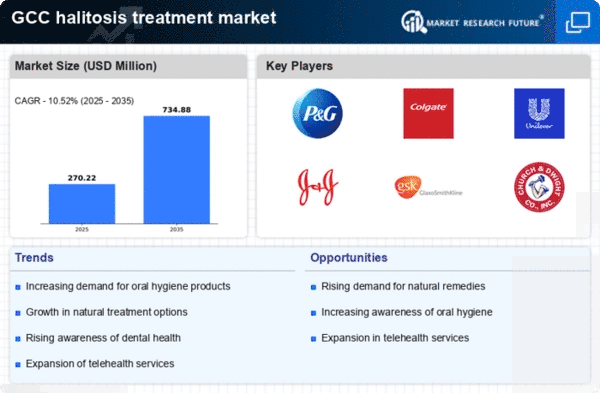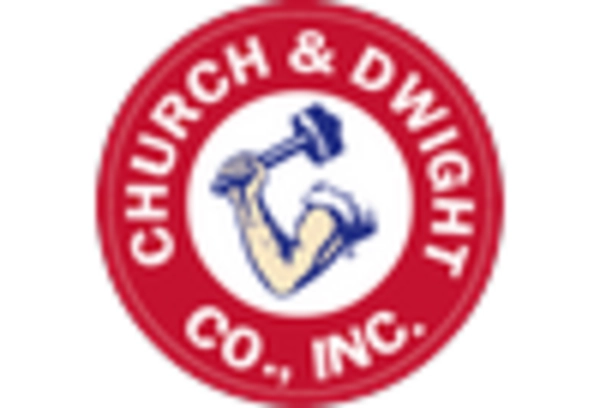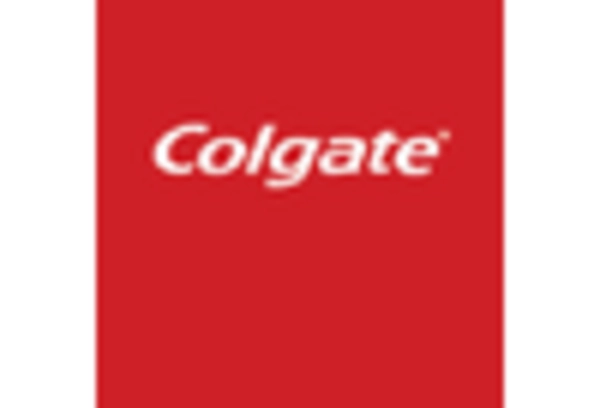Rising Disposable Incomes
The rise in disposable incomes across the GCC countries is significantly impacting the halitosis treatment market. As consumers experience increased financial flexibility, they are more inclined to invest in personal care products, including those targeting oral health. This trend is particularly evident in urban areas where lifestyle changes have led to a greater emphasis on personal grooming and hygiene. Market analysis suggests that the halitosis treatment market could see a revenue increase of up to 15% in the next few years, driven by consumers' willingness to spend on premium oral care products. This shift indicates a growing market potential for innovative solutions that cater to the needs of health-conscious individuals.
Expansion of Retail Channels
The expansion of retail channels in the GCC region is a crucial driver for the halitosis treatment market. With the growth of e-commerce and the establishment of specialized health and wellness stores, consumers now have greater access to a variety of oral care products. This increased availability facilitates consumer choice and encourages the exploration of different treatment options for halitosis. Market trends suggest that online sales of oral care products are expected to grow by 25% over the next few years, further enhancing the reach of halitosis treatment solutions. This trend indicates a promising future for brands that adapt to the evolving retail landscape.
Emphasis on Health and Wellness
The growing emphasis on health and wellness in the GCC region is significantly influencing the halitosis treatment market. As consumers prioritize their overall well-being, there is a heightened focus on maintaining good oral health as a component of holistic wellness. This trend is driving demand for products that not only address halitosis but also contribute to overall oral hygiene. Market data suggests that the halitosis treatment market could experience a growth rate of around 10% annually, as consumers increasingly seek out solutions that align with their health-conscious lifestyles. This shift presents opportunities for brands to innovate and develop products that cater to this evolving consumer mindset.
Growing Awareness of Oral Hygiene
The increasing awareness of oral hygiene among consumers in the GCC region is a pivotal driver for the halitosis treatment market. Educational campaigns and health initiatives have highlighted the importance of maintaining oral health, which directly correlates with the prevalence of halitosis. As individuals become more informed about the causes and effects of bad breath, the demand for effective treatment options rises. This trend is reflected in market data, indicating a projected growth rate of approximately 8% annually in the halitosis treatment market. Consumers are actively seeking products that not only address bad breath but also promote overall oral health, thereby expanding the market for various treatment solutions.
Influence of Social Media and Marketing
The influence of social media and targeted marketing strategies is reshaping consumer perceptions and choices in the halitosis treatment market. With the proliferation of digital platforms, brands are leveraging social media to educate consumers about halitosis and promote their products. This has led to a surge in product visibility and consumer engagement, particularly among younger demographics. As a result, the market is witnessing a shift towards more innovative and appealing treatment options. Data indicates that brands utilizing social media marketing strategies have experienced a sales increase of approximately 20% in the halitosis treatment market, underscoring the effectiveness of these modern marketing approaches.
















